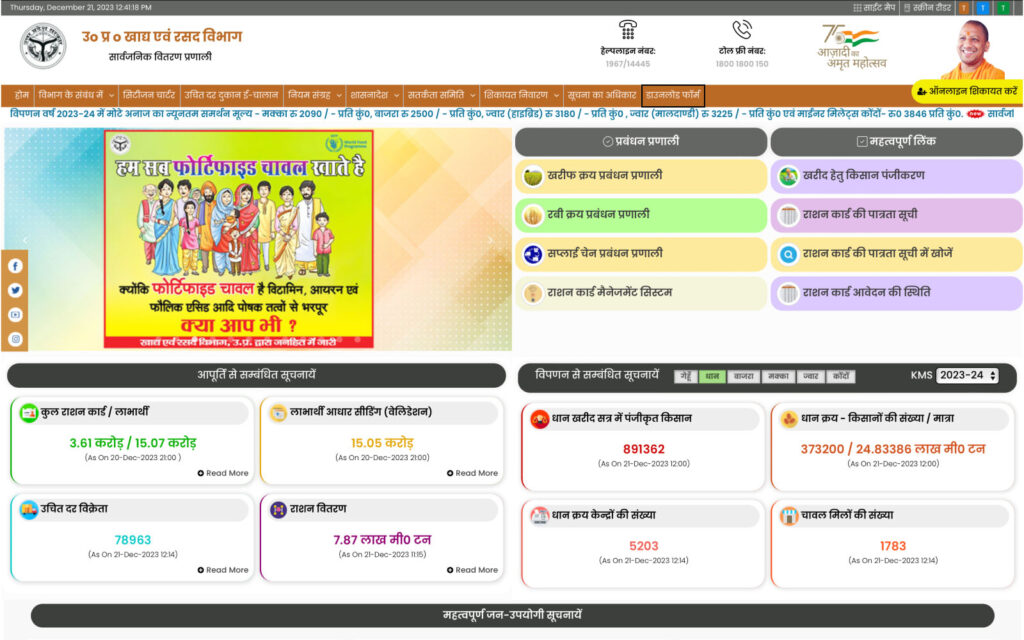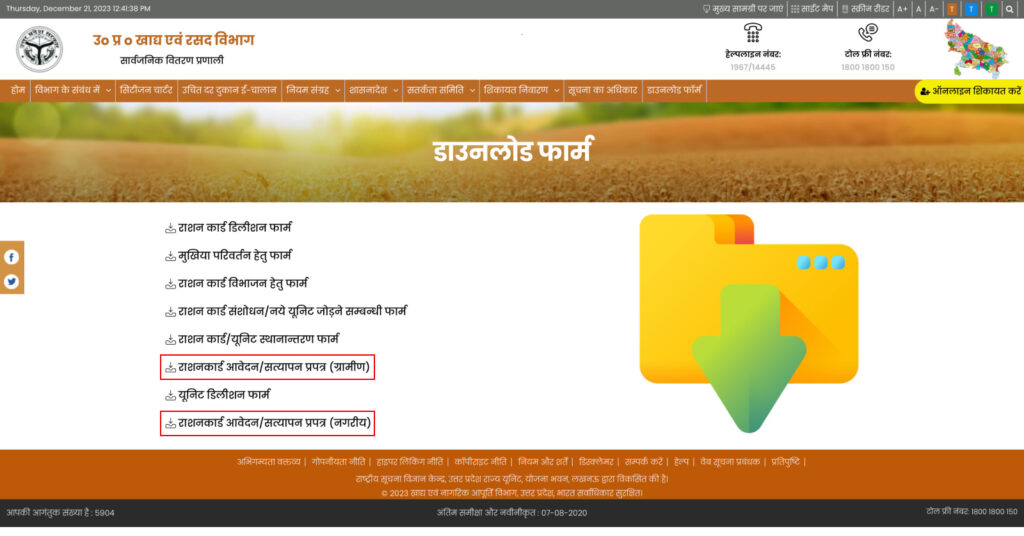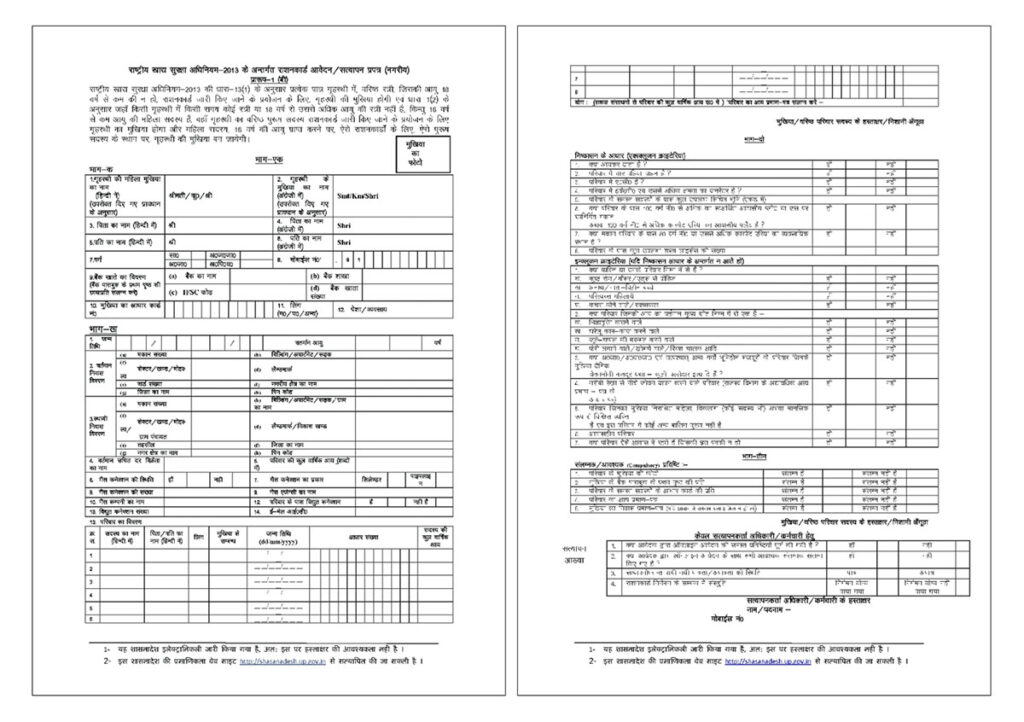One Nation One Ration Card (ONORC) scheme – a game-changing initiative by the Government of India to ensure food security for all citizens. In this blog, we will explore the ONORC scheme, its goals, how it works, the benefits it brings, and the positive impact it can have on the lives of many people.
What is One Nation One Ration Card Scheme?
The One Nation One Ration Card (ONORC) scheme is a program introduced by the Government of India to provide food security for all citizens. The One Nation One Ration Card (ONORC) scheme works by connecting all the ration card databases from different states and territories into one system. It allows individuals to use their ration card to access subsidized food grains from any Fair Price Shop (FPS) across the country, regardless of their location. The ONORC scheme aims to simplify the process of obtaining food grains and ensure that individuals can avail the benefits of the Public Distribution System (PDS) even if they move or travel to different states.
Objectives of One Nation One Ration Card Scheme
- The One Nation One Ration Card (ONORC) scheme aims to provide food and rice subsidies to beneficiaries as per the National Food Security Act of 2013.
- The scheme seeks to increase the issuance of ration cards to reach approximately 80 million eligible individuals.
- It addresses the challenge faced by migrants who relocate for work by enabling them to access subsidized food through the local Public Distribution System (PDS) in their new cities.
- Beneficiaries can use their ONORC ration cards at any Fair Price Shop (FPS) across the country, making it easier for them to obtain subsidised food grains and rice.
- The scheme provides flexibility for beneficiaries to obtain food stamps from their hometown’s FPS or any other city they reside in, ensuring convenient access to basic food necessities.
- The ONORC scheme aims to improve food security for all beneficiaries across India, regardless of their location, thus helping migrants and enhancing their well-being.
- The program becomes more effective by including all Indian States and Union Territories (UTs), ensuring a smooth and unified experience for beneficiaries across the country.
Also Read: Link Aadhaar with Ration Card
Features and Benefits of One Nation One Ration Card
- Integrated Management of PDS: The scheme ensures the smooth distribution of food rations across the country.
- Extensive Beneficiary Coverage: The scheme covers around 65 crore beneficiaries.
- Inclusion of NFSA Beneficiaries: The scheme includes around 80% of the beneficiaries registered under the National Food Security Act.
- Comprehensive Integration of States and UTs: Currently, 28 states and 7 union territories are part of the scheme.
- Expansion to Reach More Beneficiaries: The scheme aims to cover all states and UTs, benefiting approximately 81 crore people.
- Improved Access for Migrant Workers: The scheme allows migrant workers to get food rations at reasonable prices, regardless of their location.
- Immediate Resolution: If there are any issues, beneficiaries can switch to another store quickly.
- Empowerment of Women and Vulnerable Communities: The scheme prioritizes women and marginalized communities, making it easier for them to access the Public Distribution System.
- Contribution to Hunger Reduction: The scheme helps in achieving the goal of eliminating hunger by 2030.
List of States/UTs Implemented ONORC
Tabulated below are the states and union territories which have implemented the one nation one ration card scheme:
| State/UT | ONORC Implementation Date |
|---|---|
| Assam | June 2022 |
| Chhattisgarh | February 2022 |
| Delhi | July 2021 |
| West Bengal | August 2021 |
| Chandigarh | November 2020 |
| Puducherry | November 2020 |
| Meghalaya | December 2020 |
| Andaman & Nicobar Islands | December 2020 |
| Tamil Nadu | October 2020 |
| Arunachal Pradesh | October 2020 |
| Ladakh | September 2020 |
| Lakshadweep | September 2020 |
| Jammu and Kashmir | August 2020 |
| Manipur | August 2020 |
| Nagaland | August 2020 |
| Uttarakhand | August 2020 |
| Mizoram | June 2020 |
| Odisha | June 2020 |
| Sikkim | June 2020 |
| Dadra and Nagar Haveli & Daman and Diu | May 2020 |
| Bihar | May 2020 |
| Himachal Pradesh | May 2020 |
| Punjab | May 2020 |
| Uttar Pradesh | May 2020 |
| Madhya Pradesh | January 2020 |
| Goa | January 2020 |
| Jharkhand | January 2020 |
| Tripura | January 2020 |
| Karnataka | October 2019 |
| Kerala | October 2019 |
| Rajasthan | October 2019 |
| Haryana | October 2019 |
| Maharashtra | August 2019 |
| Gujarat | August 2019 |
| Telangana | August 2019 |
| Andhra Pradesh | August 2019 |
How to Apply for a Ration Card?
Step 1: Visit the official website of the Food and Civil Supplies department of your respective Union Territory (UT) or state. For example, in the case of Uttar Pradesh, go to https://fcs.up.gov.in.

Step 2: Locate the “Download Forms” section on the homepage of the website.
Step 3: From the dropdown list, select the “Application Forms” option. You will find separate links for application forms specific to urban and rural areas.

Step 4: Download the application form and save it on your device.

Step 5: Print out the downloaded form and fill in all the required details accurately.
Step 6: Once you have completed filling in the necessary information, submit the filled application form at the nearest regional Common Service Centre (CSC) or Tehsil centre.
Disclaimer: This blog is written to make it easy for readers to understand complicated processes. Some information and screenshots may be outdated as government processes can change anytime without notification. However, we try our best to keep our blogs updated and relevant.
Conclusion:
The One Nation One Ration Card (ONORC) scheme allows people to get subsidized food from any Fair Price Shop (FPS) in the country, ensuring food security. The scheme simplifies the process of obtaining food grains and provides uninterrupted access to food, even when people move to different states. To apply for a ration card, download the form, fill it accurately, and submit it at the nearest Common Service Centre (CSC) or Tehsil centre. The ONORC scheme greatly benefits individuals and contributes to enhancing food security nationwide.


